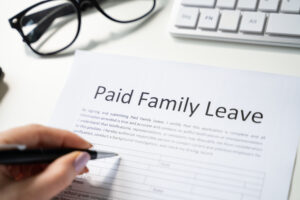Balancing work commitments with family and medical needs can be challenging. Thankfully, the federal Family and Medical Leave Act (FMLA) and the California Family Rights Act (CFRA) offer certain protections to employees. Both acts intend to shield eligible workers, allowing them to take necessary breaks for specific personal and familial circumstances without jeopardizing their employment status.
If you have lost your job due to taking time off and believe your rights have been ignored, contact PLBH at (800) 435-7542 to speak to an employment law attorney.
Decoding the Key Provisions
FMLA and CFRA ensure that eligible employees can avail up to 26 weeks of leave within a 12-month timeframe for significant personal health conditions or to care for a family member facing health challenges. They can also utilize this leave to bond with a newborn, an adopted child, or a foster child. Some provisions under FMLA also cater to urgent situations related to a close family member’s military service.
Though the essence of FMLA and CFRA is analogous, nuances differentiate them. Essentially, they protect employees from losing their jobs or facing disruption in health insurance when taking unpaid leave. For instance, an employee who avails leave under FMLA can expect to return to the same or a similar job role. During their absence, their health insurance benefits persist as if they were working consistently.
Conversely, the CFRA mandates that an employee should have clocked at least 12 months and 1,250 hours within that span to qualify for the 26-week leave.
Employers who fall under the purview of FMLA and CFRA are those who employ 50 or more individuals within a 75-mile radius of the workplace. Those with fewer employees are exempt, presuming the economic strain such leaves might induce.
The California Paid Family Leave (PFL) offers up to 6 weeks of partial compensation to employees stepping back from work to care for an ailing family member or to welcome a new child through birth, adoption, or foster care.
A pivotal aspect of both FMLA and CFRA is the employee’s right to return to a position that mirrors their previous one in terms of pay, duties, benefits, and other working conditions. The location and work schedule should also align with their prior role. But there are exceptions, and understanding these nuances might necessitate legal guidance.
From 2018 onwards, under Assembly Bill 908, wage replacements during qualifying leaves have risen to 60–70% based on income. It’s also paramount for employees to initiate their benefit claims within 41 days from the start of their leave and furnish medical documentation validating the necessity of the break.
The labyrinthine nature of these laws, coupled with varying employer interpretations, sometimes leads to unintentional oversights or intentional non-compliance. Therefore, keeping written records of all correspondence and adhering to company policies when applying for leaves is prudent.
Navigating Denied Claims
If you suspect your rightful claims under FMLA or CFRA have been dismissed, there’s a legal recourse available. At PLBH, we prioritize justice for those who believe their employee rights might have been overlooked. Our seasoned team, with a legacy of securing significant verdicts and settlements, is adept at comprehensively addressing such concerns.
To ascertain if your FMLA or CFRA rights have been infringed upon, or to gain clarity on eligibility criteria, job protection, and PFL qualification, reach out to PLBH at (800) 435-7542. Our proficient team is always ready to guide and assist.

